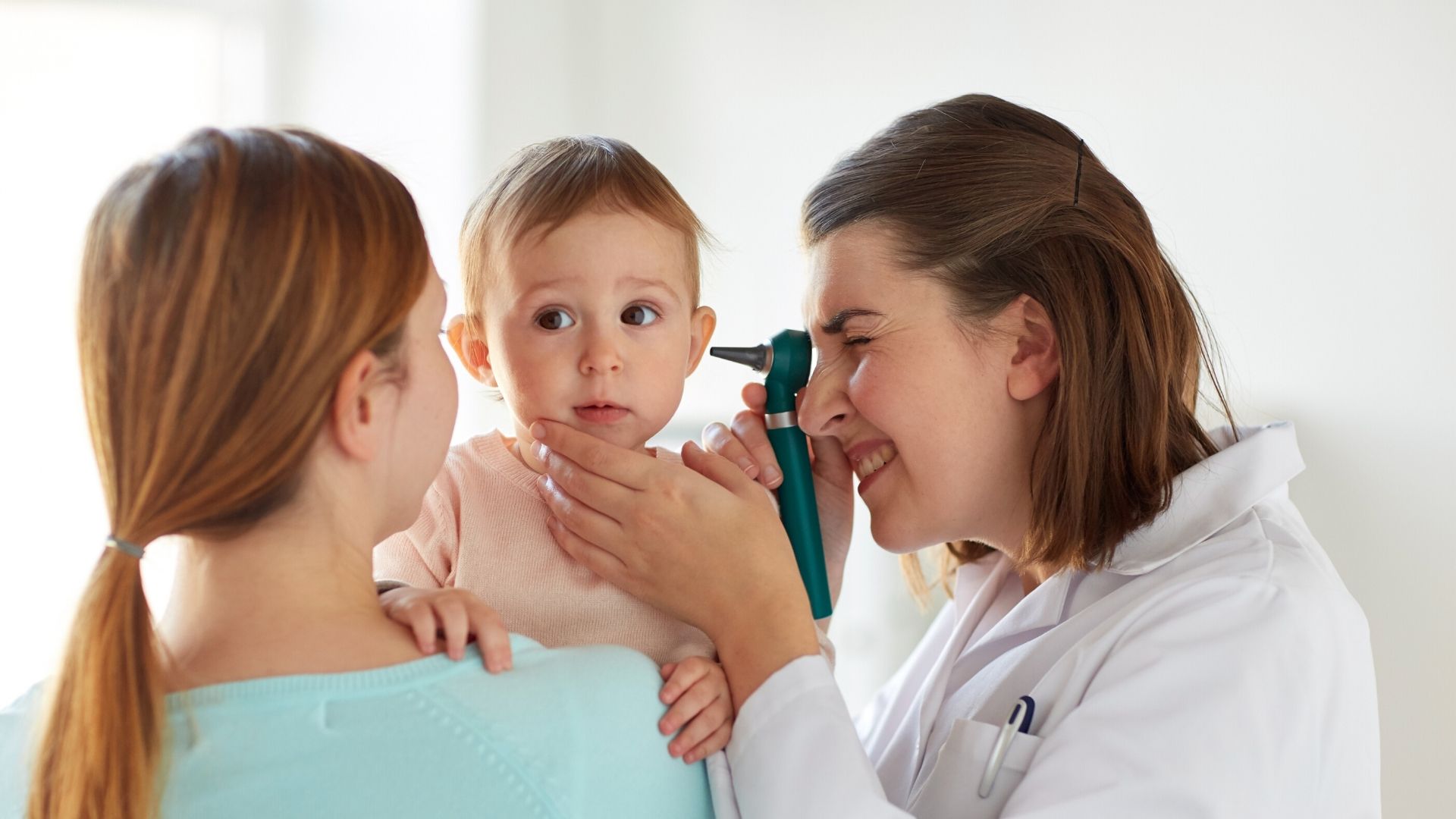Your First Ear, Nose, and Throat Doctor Visit
Pediatric ENTs (ear, nose, and nose doctors) or otolaryngologists can treat problems like your child’s ear pain or sore throat and find solutions to any hearing issues that may be occurring.
If you receive a referral from your pediatrician to an ear, nose, and throat doctor, it’s probably for a good reason. It could be due to frequent ear infections, sinus issues, or hearing difficulties.
Pediatric ENTs are pros at making sure your little one is as calm as possible, but it’s always good to know what to expect at these visits. It’ll make your child’s visit (and yours) as easy as possible.
https://www.youtube.com/watch?v=NG2wZ4PGCy8
Watch Andrew's Story about his ENT visit.
Helpful Tips for Your First Ear, Nose, and Throat Doctor Visit
1. Tell your toddler the basics
There’s no need to use strange words like “pediatric ear, nose, and throat doctor,” “ENTs,” “doctors,” or “otoscope.” You should explain that she’s going to a new doctor who can help her ears feel better.
It may also be helpful to explain what the doctor will be doing at the visit. The doctor will use a special light to look inside her ears, ask her to open her mouth wide, and sneak a peek up her nose (to make sure that the still-developing sinuses are also draining properly). You can practice these tasks during pretend play (e.g., playing house or doctor) beforehand.
2. Practice sitting still
Since her ears have been bugging her, she may be worried that a kids’ ENT exam will hurt her when the doc checks inside them. My daughter always gives the doctor a nasty look when he looks in her ears. It’s just something kids are not a fan of, regardless if they have pain or not. Remind her that this doctor’s job is to help kids’ ears feel better, and she can help if she sits still and does what the doctor says.
To prep, do a dress rehearsal: Plop your tot on a chair or your lap and see if she can stay frozen while you touch the outside of each ear. Have your child practice looking in your ears, too.
3. Leave lots of time for the appointment
Your first visit to a kid’s ENT may take a while. Besides the typical doctor’s office delays, pediatric ENT doctors often take time to develop a rapport with their tiny patients before they go poking and prodding. And little kids (who often struggle with stranger anxiety) can be slow to warm up to grown-ups – especially grown-ups with scary-looking tools.
The same goes for your first eye exam and hearing test, so make sure you come prepared!
5. Speak up and listen up
During the exam, don’t hesitate to ask questions, and let your child know that she can ask whatever she wants to as well. Obviously, really little children can’t ask questions, so that’s why you need to be prepared to do the asking. The more answers you have, the better able you’ll be to care for those little ears after you leave the exam room.
Kids’ ENTs will, of course, tell you what they find (often pus or fluid behind the eardrum) and then recommend a course of action. If the doc also checks her hearing or does a tympanogram, which tests the pressure in the middle ear, make certain the test results are explained to you as well as what next steps you may need to take.
I suggest taking a notebook with you so that you can take notes. It’s easy to forget information when there’s a lot being thrown at you!
https://www.youtube.com/watch?v=ELLOEHEFuxw
What to expect when visiting an ear, nose and throat doctor
Personal Experience with ENTs
We took our daughter, Nora, to a pediatric ear, nose, and throat clinic when she was about 6-months-old because she was constantly stuffy. My husband has nasal issues and we wanted to make sure there wasn’t anything genetically inherited. I can tell you the visit was way more traumatic for me than it was for little miss Nora.
Did she cry? Yes. Did I cry? You betcha. The whole process was over in about 10 minutes.
They looked inside her nasal cavity and checked out her mouth to make sure her adenoids weren’t swollen. They also checked her ears to make sure everything was functioning adequately. We left with a nasal spray and she was better in about a week. We never had to go back.
I can promise you that it may seem overwhelming, but the ENT will help your child be more comfortable and the visit will be over quicker than you think.
 By Stacie Bennett
By Stacie Bennett